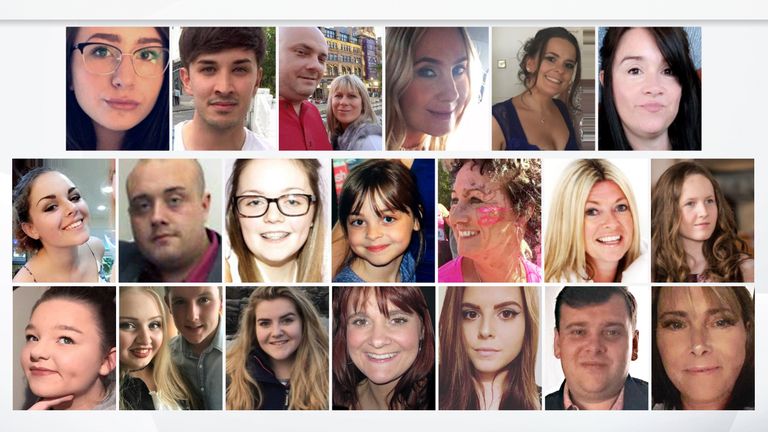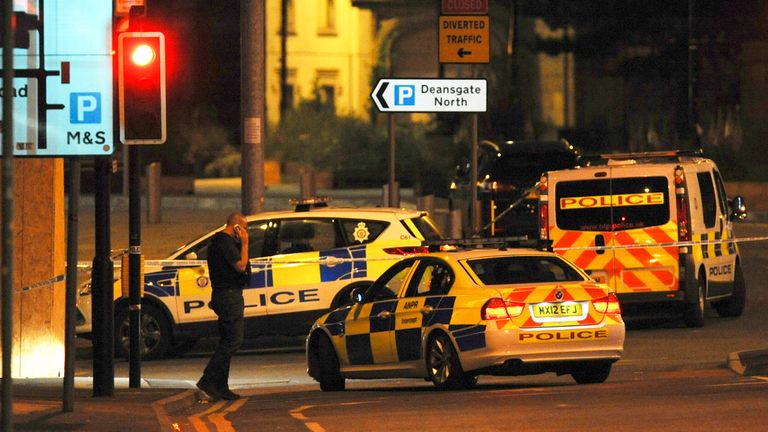Manchester Arena bombing inquiry: Police sergeant at attack scene decided it was safe because bomber was dead
A police sergeant who was among the first to arrive at the Manchester arena bombing decided it was safe to treat the injured within minutes because the bomber had died in the attack, the inquiry has heard.
Sgt Andrew Beasley of Greater Manchester Police (GMP) discussed the risk of a secondary device with an inspector on the scene and discounted it because the bomber was obviously dead.
However, they never communicated their assessment with others and only one paramedic entered the City Room foyer where the bomb had gone off in the first 43 minutes, while the fire and rescue service did not arrive for more than two hours.
Salman Abedi killed 22 men, women, and children when he blew himself up in a suicide bomb attack at the end of an Ariana Grande concert in May 2017.
Sgt Beasley was not told the GMP force duty officer had declared the incident “Operation Plato”, a marauding firearms attack, even though it was a suicide bomber.
He said it was “clear that this was a bombing” before he left Central Park police station.
“I was clear I would be going to the scene of a bomb. Really that is all I knew,” he said.
Nick de la Poer QC, for the inquiry asked: “Were you concerned there might be active terrorists with firearms?”
“No, I didn’t consider that fact. No information I had received suggested there would have been,” Sgt Beasley said.
Sgt Beasley arrived at 10.49pm, 18 minutes after the explosion and left the City Room 12 minutes later to brief officers arriving from his division.
He had not considered the possibility of a secondary device until one of his PCs asked, he said.
“Being asked that question made me quite shocked that I hadn’t [considered it],” he added.
Mr de la Poer asked: “Putting it delicately as I can, was the conclusion that you and Inspector [Michael] Smith reached that the person who had caused the detonation no longer posed a threat?”
“Yes,” Sgt Beasley said.
“There were physical factors that we could see and information that we received that meant the likelihood of secondary device was so small that we could ignore it and continue as we were.”
“We came to the conclusion that it was carried in and still worn or carried in and placed down, as opposed to being hidden and detonated.”
“From a secondary device, we felt we could say that the risk didn’t exist and so we could carry on.”
Sgt Beasley “didn’t see the need to communicate” their decision because it made no difference to what they were doing.
Mr de la Poer asked: “Did it cross your mind that people outside the City Room might find your conclusion useful?”
But the sergeant said: “No, it didn’t because my concern was about those working in the City Room.”
Mr de la Poer added: “Bearing in mind you had only seen one paramedic in there, did you think one explanation might be that paramedics were holding back from going into the City Room?”
“No, that didn’t cross my mind sir,” the sergeant said.
The inquiry continues.
Source: Read Full Article




